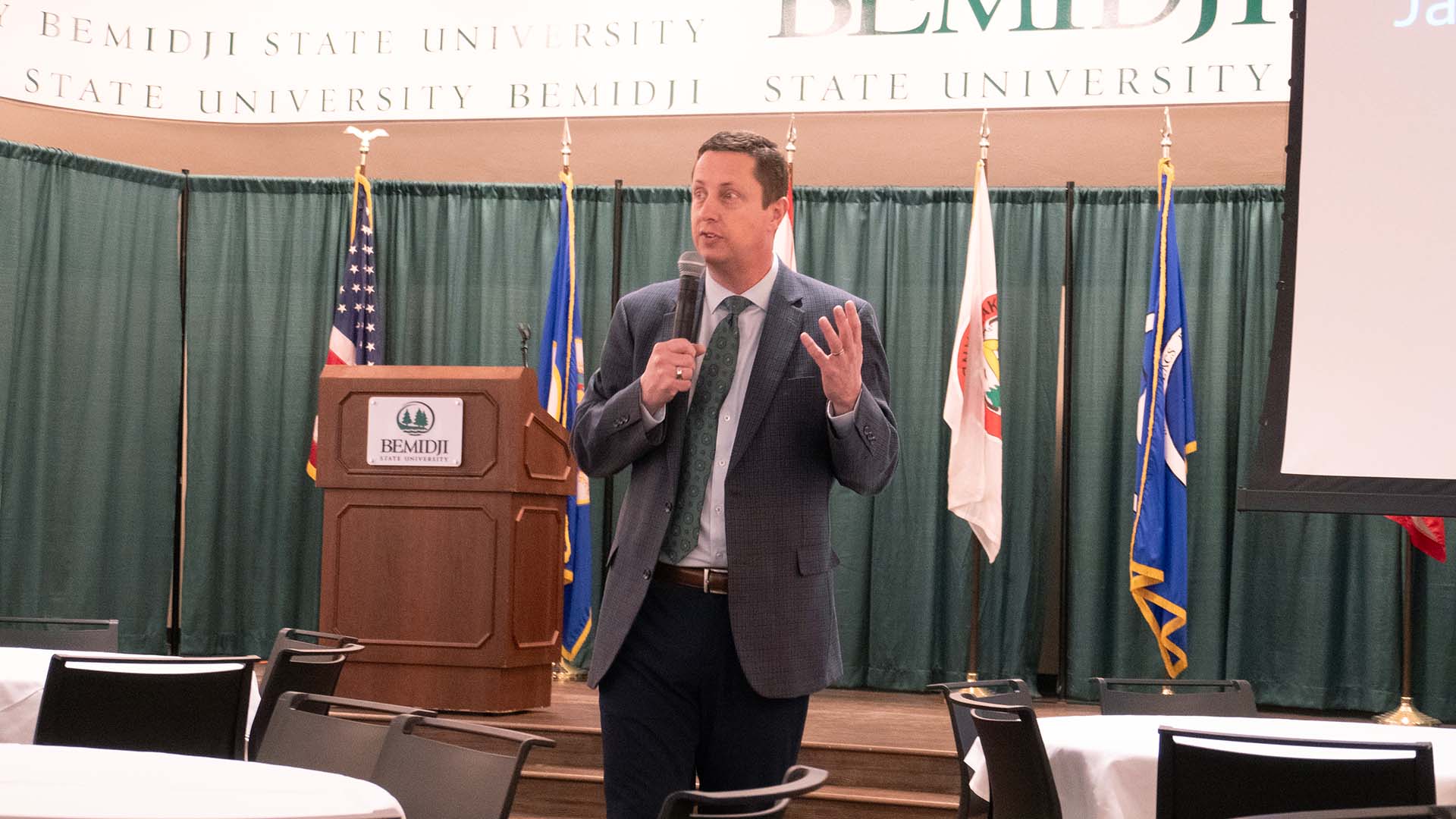
Commentary from John L. Hoffman, president of Bemidji State University and Northwest Technical College
For decades, Bemidji State University and NTC, Bemidji’s Technical College, have understood that all of us are stronger when we weave Indigenous ways of believing and knowing into the fabric of our lives. Faculty and other leaders have reinforced this time and time again with the nation’s first Ojibwe language program; one of the first Indian studies programs in the country; the world’s only academic journal on the Ojibwe language; the creation of the American Indian Resource Center; the first American Indian hired as a vice president at a Minnesota State university; and the oldest continually operating pow wow in Bemidji. These are just a few of the many ways we have strived to be not only a strong partner for our American Indian neighbors but also a committed advocate for their success.
Now it is time for us to do more and to do better.
With legislation passed last spring, Minnesota took important steps to ensure that American Indians have accessible, affordable opportunities to pursue higher education through the new American Indian Scholars Program. This program provides free tuition for Minnesota’s American Indians who are enrolled members of any federally recognized tribe or Canadian First Nation, as well as for American Indians outside Minnesota who are citizens of a Minnesota tribal nation. While the program applies to all of Minnesota’s public colleges and universities, the programs and services listed above position BSU and NTC to serve American Indian students better and to build on this state funding to enhance the quality of education for all our students.
At BSU and NTC, we advance holistic student success grounded in diversity, equity and inclusion. You may have heard these words, but what do they mean?
Holistic student success means we are concerned with more than just one aspect of our students’ experiences on our campus. We want our students to gain knowledge and learn to apply it in ways that improve society through leadership, research, service or any other path a student may choose to take in their lives. We want our students and our graduates to consider problems from multiple points of view and to incorporate a variety of perspectives into their solutions. Frankly, the challenges we face today are too complex to be solved by individuals alone — we need diverse teams that explore how potential solutions that may work for one group of people might make a situation worse for others.
When each BSU and NTC class graduates, they enter a world that is increasingly diverse — diverse in nationality, thought, appearance, identity and a million different and beautiful ways. For our graduates to examine problems from multiple frames of reference and to ensure solutions to problems are as equitable as possible, they must see beyond their own tendencies and worldviews to collaborate with people who have different ideas and experiences. Then, they must incorporate those new perspectives into their work and problem-solving.
This requires us to focus on what we do best — teach and create new knowledge. Beginning in the fall of 2024, we are incredibly excited to launch Nisidotaading (nih-sih-doe-TAA-ding) curricula that will introduce every BSU student to a course on the region’s Indigenous people before they graduate. Nisidotaading is named for an Ojibwe phrase that means “having a mutual understanding.” It embodies our unique approach to diversity, equity and inclusion, and there are only a few similar programs on the North American continent — in Alaska’s university system, where all students take a course on Alaska Native peoples, and among a number of Canadian universities where students take a course on local Indigenous peoples before they graduate.
Nisidotaading’s emphasis on mutuality will provide our students with a powerful opportunity to develop a deeper understanding of the realities faced by Indigenous communities in a way that is relevant to our region and, as a result, help tear down misconceptions and stereotypes. But beyond taking on stereotypes that fuel injustice, Nisidotaading will provide all students with the vitally important tools necessary to think critically and look beyond themselves. Stated differently, Nisidotaading fosters knowledge and skills for the jobs of the future.
Nisidotaading educational experiences — which we are also providing for our employees, and which regional businesses have asked us to deliver for their employees — address the painful history of our region, examine topics of tribal sovereignty and treaty rights, lift up Indigenous culture, and build skills to fight injustice. Nisidotaading’s focus on mutuality also teaches students to view problems holistically. We are confident this will equip our students to engage with society through meaningful, transformative conversations and develop solutions to complicated problems, no matter who they may be working and living alongside. We also want our graduates to consider the various, perhaps unseen, impacts of their proposed solutions.
For more than 100 years at BSU and nearly 60 at NTC, our mission has included providing access to college for students who had previously been left out — students from low-income families and rural communities, students whose parents did not go to college, adults returning to complete degrees and American Indian students and other students of color. To do more and do better, Nisidotaading reminds us that as we create these diverse spaces we also need to learn from one another.

John L. Hoffman
President
Bemidji State University & Northwest Technical College
